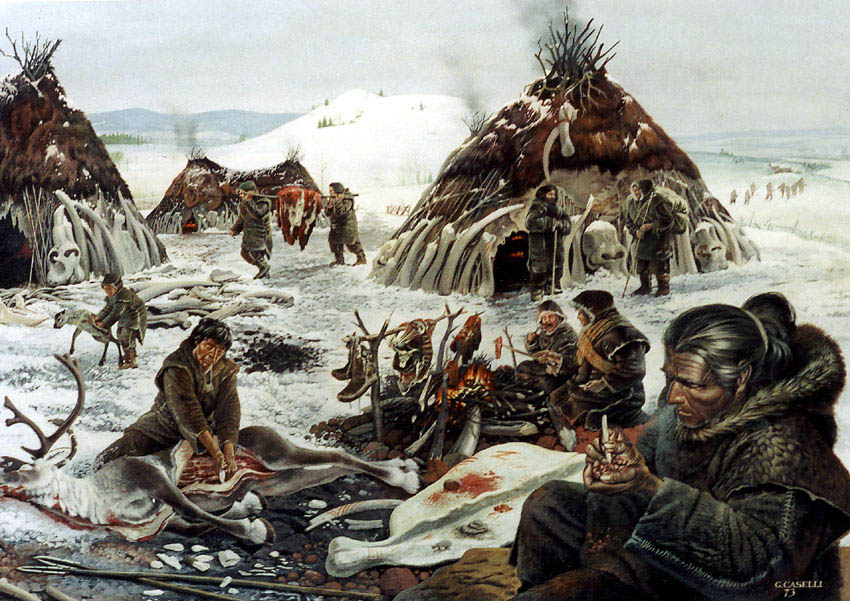The Paleo Diet is predicated on the fact that humans evolved for millions of years consuming only that which be could hunted, foraged and gathered; a diverse and seasonally-changing diet of wild game, fish, shellfish, eggs, tree nuts, vegetables, roots, fruit, berries, mushrooms. Only in the last 10,000 years or so, with the advent of agriculture and animal husbandry did we begin making grains, dairy (sort of a gray-area; a bane for some, a boon for others), legumes and other crops, and more recently, refined vegetable oils staples of our diets. These "neolithic foods" are truly incompatible with our biochemistry and may even pose a significant hindrance to our health and wellbeing, especially considering the extent to which we have refined and processed and allowed them to pervade almost every corner of our food supply. More specifically however, even in their whole forms, the gluten, lectins and anti-nutrients in these foods work antagonistically to our bodies, and can disrupt otherwise healthy function (even whole, unrefined grains may not be as healthy as you think...).
Wheat and grain products also impose other, less cryptic banes upon society. Over-consumption of wheat and starchy grain products- large quantities of refined carbohydrate (pasta, bread, etc)- combined with our sedentary lifestyles is likely the main cause of metabolic derangement, obesity and diabetes. The dramatic increase in refined sugar consumption has contributed greatly to this as well. These are habits that would otherwise be impossible before the advent of industrial processing! (Humans have always been able to grab a spear and kill a fatty, protein-rich animal!!) Finally, the amounts and types of fats we eat have changed dramatically as well, having wide-ranging implications on health and disease. We are vehemently told to favor unsaturated vegetables oils over animal and other saturated fats, and we have complied. But these oils are extremely high in pro-inflammatory omega-6 polyunsaturated fats, and combined with a diet lacking in omega-3's, may actually be the main culprit in heart disease.
I highly encourage you to watch this video (Thank you Pay Now, Live Later):
When viewed in this light, it becomes intuitively clear that this is the way humans are intended to live and eat. We live in an artificial food-abundant environment that allows us to instantly satisfy the slightest urges; we can eat things and eat in ways that humans have never been able to do in the entire history of our species' evolution. As you start analyzing all the discordances between modern society and humans' "natural habitat" you can see how deep this concept goes. (I mean really down to the nitty gritty).
I highly encourage you to watch this video (Thank you Pay Now, Live Later):
When viewed in this light, it becomes intuitively clear that this is the way humans are intended to live and eat. We live in an artificial food-abundant environment that allows us to instantly satisfy the slightest urges; we can eat things and eat in ways that humans have never been able to do in the entire history of our species' evolution. As you start analyzing all the discordances between modern society and humans' "natural habitat" you can see how deep this concept goes. (I mean really down to the nitty gritty).
Paleo Diet: the Basics
- Complete elimination of all processed, packaged foods, preservatives, artificial ingredients etc
- Elimination of all refined sugar and flour
- Minimization with aim of elimination of grains (gluten-grains especially)
- General reduced carbohydrate consumption; carb sources in order of non-starchy vegetables, fruits, roots/tubers; sweet potatoes, yams, squash (Paleo does not have to be extreme low-carb necessarily)
- Ample protein from high-quality animal sources
- Increased healthy fats; fats should make up majority of calories: mostly mono-unsaturated from olive oil, avocados, animal fats and saturated fats from organic butter, milk/cream (if deciding to include dairy) coconut oil + milk. Increased consumption of saturated animal fats (Yes, that's what I said)
- Minimizing if not eliminating vegetable oils (Soy, corn, canola, etc)
- Getting ton's of Omega 3's, through supplementation if necessary (I eat a can of sardines almost every day)
- Lot's of different colors of vegetables, fruits; focus on nutrient density.
For me, I get the bulk of my food volume from vegetables; salads & cooked veggies, fruits, the occasional sweet potato or squash, and the bulk of my calories from healthy fats such as coconut oil, avocados, nuts, olive oil, ghee, and grass-fed tallow. I also include ample amounts of high quality protein from grass-fed beef, bison, lamb, wild salmon, sardines & other seafood, free range chicken, organic eggs etc.
For a much more comprehensive list of how to eat and live according to the Paleo Diet/lifestyle, peruse this page by Diana Hsieh of Modern Paleo. I agree 100% with everything she outlines on that page, and I think it is the ultimate resource for both newcomers and anyone trying to deepen their knowledge of health and nutrition.


